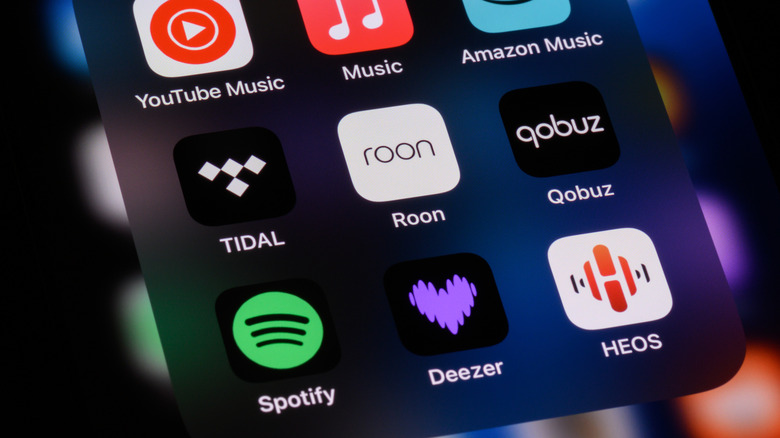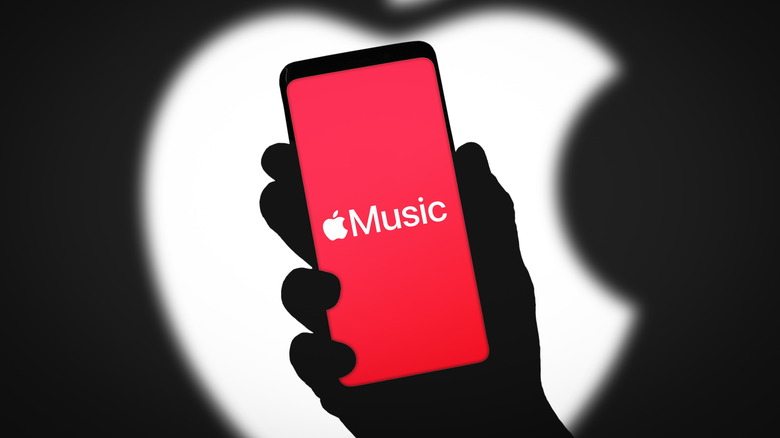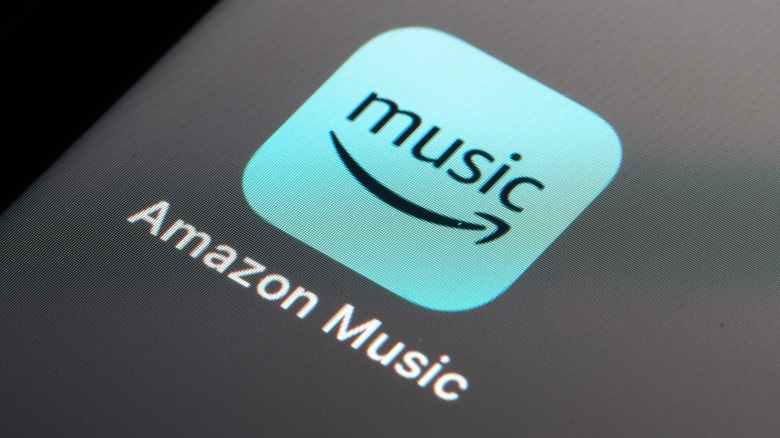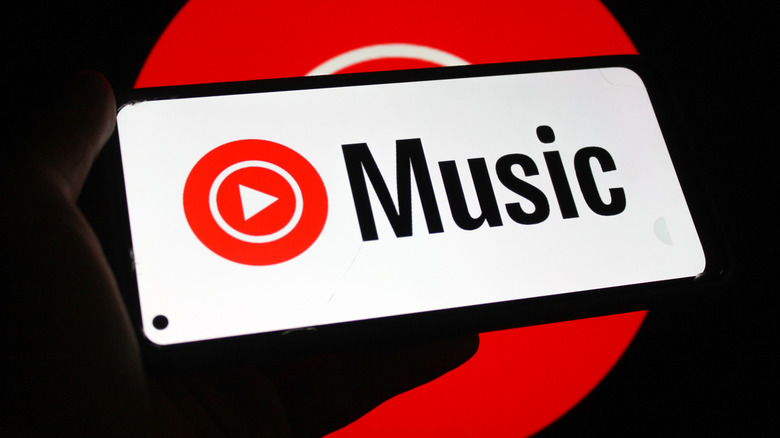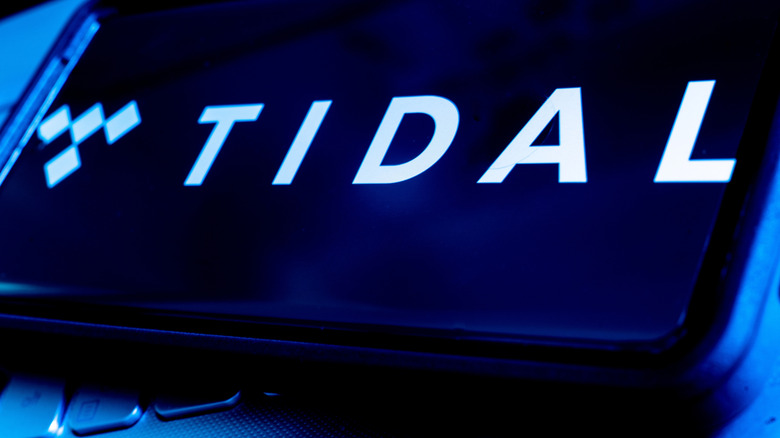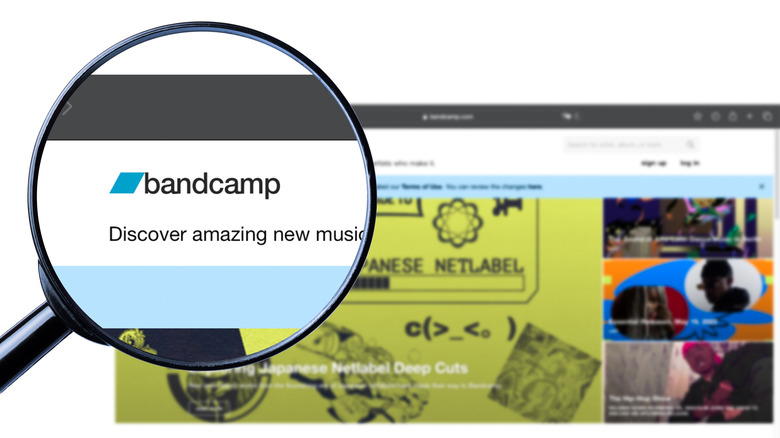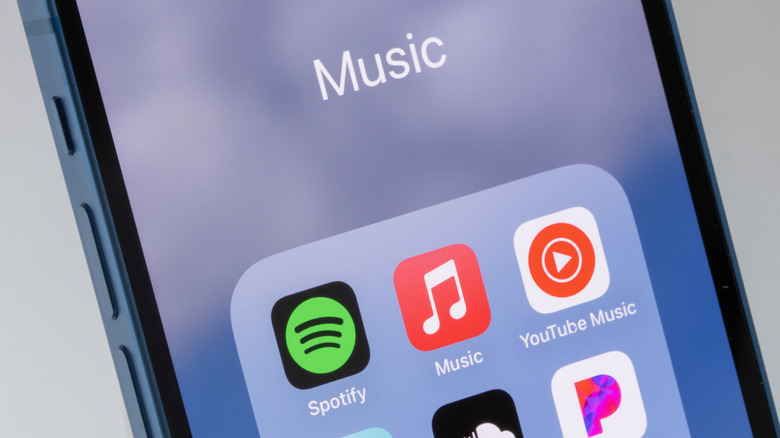5 More Affordable Alternatives To Spotify Premium
Spotify is the most popular music streaming service, at least based on subscriptions, but does it do enough to justify its $11.99 a month price tag for Premium subscribers? Unlike most others, it did not offer high-resolution audio until very recently, with spatial audio not yet in sight. Spotify's big video podcast library is nice, but most podcasts are readily available for free on other platforms. On the other hand, it has some killer features that I miss whenever I switch away. Spotify Connect, which lets you swap playback devices on the fly without skipping a literal beat, is the closest thing to magic I've experienced on a streaming app.
I've made a groundbreaking discovery, so make sure you're sitting down: It turns out that other music streaming services exist, and some of them give Spotify a real run for the money. The competition has stepped up its game in 2025, and many of the best alternatives to Spotify are also priced to undercut it. So, I rounded up five of those cheaper options and put them through their paces. Although Spotify and other services may offer family plans along with steep discounts to students, this article focuses only on individual monthly pricing.
All of these Spotify alternatives are available on both Android and iOS in the United States. Additionally, I paid for these services with my own money and tested them for at least a month each to get a hands-on understanding of their benefits and drawbacks. With that out of the way, let's take a closer look at five of the most affordable alternatives to Spotify Premium.
Apple Music is a likely alternative for most people
Apple Music is commonly seen as Spotify's main rival in the market, as Apple enjoys a long history in the digital music arena, going back to the 2003 launch of the iTunes Store. As of this writing, individual plans run $10.99 monthly. It naturally offers native apps for iOS and macOS, but also for Android and Windows. In my experience, the Android version is surprisingly polished and robust, although the Windows app can be frustratingly buggy.
Apple Music has better sound quality than Spotify, but so does nearly every alternative on this list. High-resolution music streams at up to 24-bit/192 kHz using the Apple Lossless Audio Codec (ALAC), and spatial audio is available for songs that support it. Like Spotify, Apple offers a variety of personalized playlists alongside curated selections. Exclusive to the platform are Apple Music Radio shows, where prominent music journalists, including Zane Lowe and Ebro Darden, host their own shows and interview popular artists. However, my favorite perk is the recorded live sets from music festivals. I'm rarely in a position to attend festivals like EDC, but I can still listen to the performances on Apple Music.
I also love the ability to upload music from my computer by dragging it into the app, letting me stream my music library without sacrificing storage space on my phone. Apple Music is likely the best Spotify alternative for most people, and it recently added an official tool to move your music from Spotify. It checks the right boxes for casual listeners and music enthusiasts alike, with no obvious dealbreakers to sour the deal.
Amazon Music is a good option for Prime members
One of Amazon Prime's perks is access to Amazon Music, although whether this makes it cheaper than Spotify depends on whether you consider Prime's $14.99 monthly fee to be the cost of entry. Even if you do, you don't get everything with the basic tier. You'll need to fork over another $10.99 monthly for access to Prime Music Unlimited if you want lossless and spatial audio. Meanwhile, non-Prime members can pay $11.99 for that same access, the same price as Spotify Premium. In other words, if you're already a Prime member and feel happy with Spotify-level audio quality, Amazon Music is "free"; if you want an upgrade, Amazon Music is a dollar cheaper than Spotify for better audio.
Amazon Music Unlimited offers high-resolution streaming up to 24-bit/192 kHz, as well as spatial audio when available. That keeps it on par with other Spotify alternatives. In my experience, Amazon's recommendation algorithm is also decent, although it misfires more frequently than Spotify's AI DJ. Platform offerings are rounded out with a stable of podcasts, along with access to one audiobook per month from Amazon subsidiary Audible.
If you're a voracious audiobook consumer, that's not going to do much for you — it feels more like an advertisement for Audible than a true perk. But the biggest pain point is the app, which is confusingly designed and was somewhat sluggish in my testing. Overall, Amazon Music is a solid option for Prime members who don't want high-resolution audio, but it's hard to justify paying extra for the Ultimate plan.
YouTube Music has unique features but lacks audio quality
Over on the Google end of the streaming landscape is YouTube Music, which replaced Google Play Music after it shut down in 2020. That's precisely what makes YouTube Music hard to recommend, regardless of its current value. Google has canceled many useful products in the past, leaving users scrambling to find replacements. At $10.99 a month, YouTube Music is more affordable than Spotify, but it's hard to trust that Google will keep the service running in the long term. With that said, it's also bundled with YouTube Premium, so existing YouTube subscribers may want to try it before shelling out for a different streaming service.
YouTube Music does provide several benefits that the competition can't match. YouTube has a lot of music that can't be found elsewhere, ranging from leaked or unreleased songs to official music videos. If, like me, some of your favorite songs from the "blog era" never made it to Spotify, there's a lot to love. Even more enticing for veterans of the iPod era is the ability to upload up to 100,000 songs to the service from your computer, which you can then stream on the go. All of these features are game-changers for digital crate-diggers, but the same qualities can also give YouTube Music a slight bootleg vibe that may be off-putting to users who prioritize polish above practicality.
Unlike other Spotify alternatives covered here, YouTube Music doesn't offer lossless audio. In fact, whereas Spotify now offers a high-resolution audio library at up to 24-bit/44.1kHz, YouTube delivers a limp 256kbps AAC, the lowest-quality audio of any service on this list.
Tidal has Hi-Res music and DJ software integrations
Though a relatively early competitor to Spotify, it's safe to say Tidal has been an odd duck of the music streaming landscape. Purchased by rapper Jay-Z shortly after its launch, the platform promised to focus on artistry and audio quality. It was an early adopter of high-resolution music streaming and it continues to pay artists among the best streaming royalties in the industry, which is a bit like being the fastest sloth. Square (now Block) purchased a majority interest in 2021, with Jay-Z staying on as a board member. Pricing has come down over time, and a premium monthly plan is now a competitive $10.99 in the U.S.
Using Tidal is decent, but not stellar. Since it mostly offers the same features as competitors like Amazon and Apple, such as lossless audio at up to 24-bit/192kHz quality, personalized playlists, and so on, what differentiates it is its interface and a few quirky features. The interface is somewhat simple, though that's not a bad thing: I find it easier to navigate than Spotify, Amazon Music, or YouTube Music.
Tidal's exclusive features are more interesting. For an additional $9 monthly, DJs can stream music straight to DJ software such as Serato and Rekordbox. The Upload feature, currently in beta, allows artists to distribute music directly to the platform without going through a third-party distributor. That said, given how cheap and easy to use digital music distributors are, it's unclear why anyone would use Tidal Upload. Overall, Tidal is a great experience for music listening, but it doesn't offer enough to differentiate itself from competitors.
Bandcamp and Qobuz trade monthly fees for permanent purchases
This year, feeling that my music tastes had become watered down by streaming, I decided to renew my efforts in building a personal music library. When you can listen to nearly any song in the history of recorded music, every album becomes interchangeable and disposable, and it's hard to appreciate the gems. The solution? Buying music outright rather than renting access to it from a streaming service.
Bandcamp has long been the go-to marketplace for independent artists, and it can end up being a lot cheaper than Spotify while giving more money directly to the musicians whose work you enjoy. Music you purchase can be downloaded or streamed from the mobile app, and is available as lossless files. Best of all, many artists offer a "pay what you want" purchase model. There's often a minimum price, but some artists let you choose between freeloading, paying a few bucks, or generously overpaying.
The big downside is that you won't find a lot of mainstream hits on Bandcamp. For those, you'll need to head over to a platform like Qobuz, which focuses on lossless audio sales and has a more traditional library. The odds of a song being unavailable on both platforms are exceedingly slim, though I haven't rummaged far beyond my own tastes.
Of course, both of these are only cheaper than Spotify if you restrict yourself to spending under $12 each month, which means an average of around 10 songs or a single album. That's partially the point, though: Instead of an all-you-can-listen music buffet, you're selecting the gems that speak to you enough to own them permanently.
How we selected these Spotify alternatives
We chose each of the streaming services covered in this article based on their pricing for individual plans, relative to the $11.99 that Spotify Premium charges in the U.S. as of this writing. We also considered other factors, such as app features, when analysing each service. We also tested each service hands-on to provide the most accurate insights possible.
